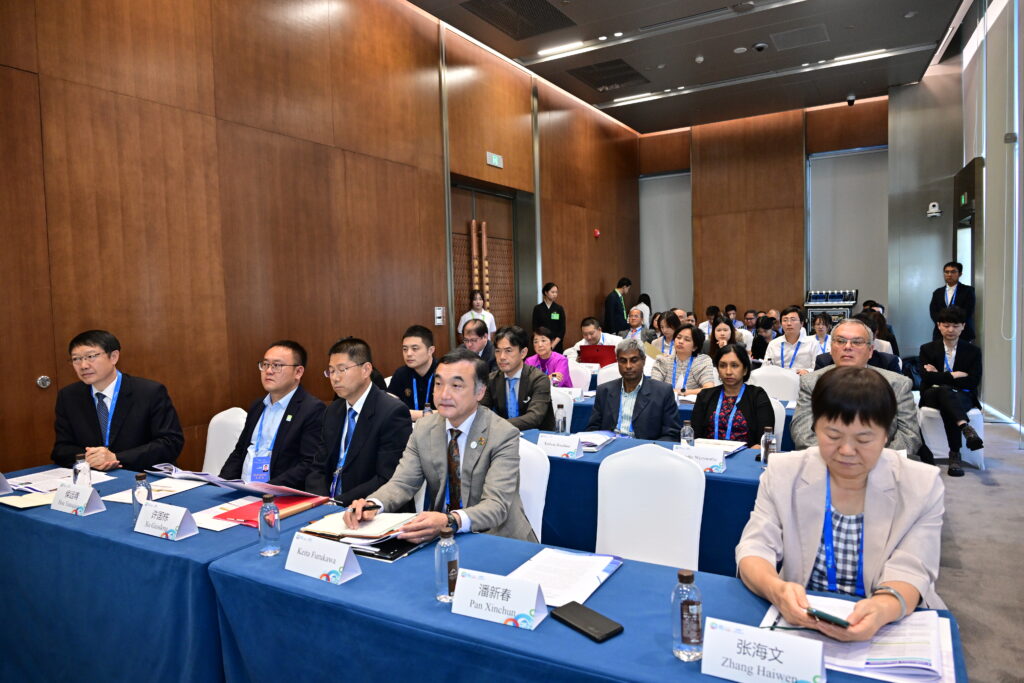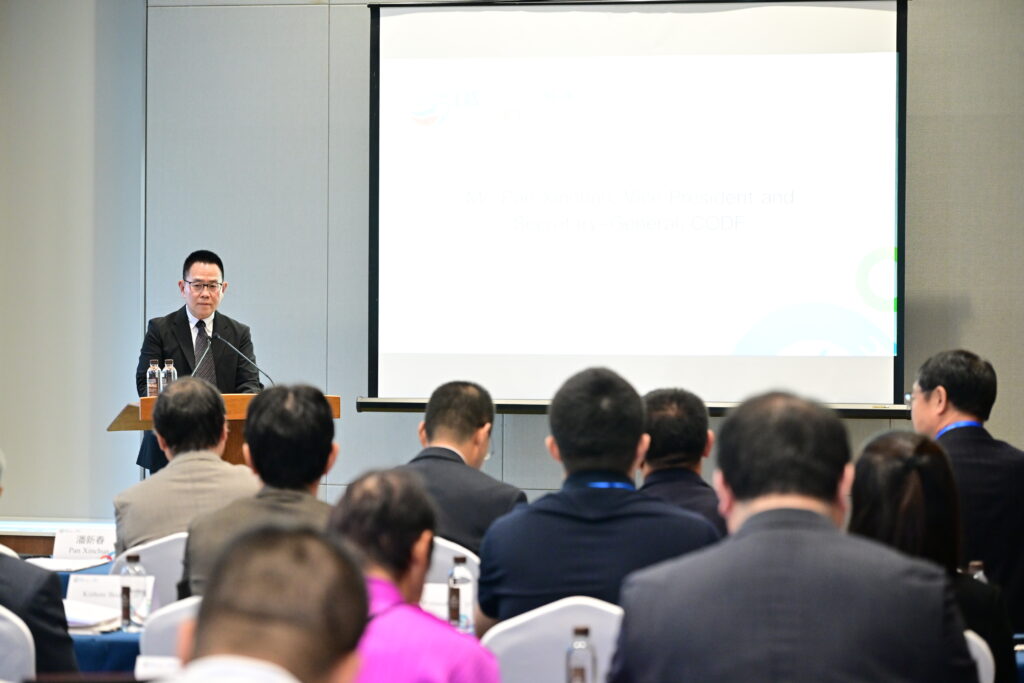ST 4.2

Presenters of ST4.2 which tackled Blue Carbon Policies and Regulations. (PRF)
Focusing on the two key aspects of consolidating and enhancing ecosystem carbon sink capacities, we must enhance ecosystem diversity, stability and sustainability, while stabilizing the current carbon sequestration functions of forests, grasslands, wetlands, oceans, soils, permafrost, karst areas and other biomes to scale-up the increment in ecosystem carbon sinks, while further mitigating adapting to climate change, to contribute to the goals of carbon peaking and neutrality.
Ensuring that the blue carbon sequestration capacity is taken into account in proposals for management measures is crucial for Marine Protected Areas.
Promoting the sustainability of the pleasure craft (boat) sector by adopting electric propulsion systems and the use of renewable energy to reduce GHG emissions and noise pollution is a concrete way to protect vulnerable marine ecosystems.
In Japan’s GHG emissions and removals for FY 2022, the amount absorbed by seagrass beds and macroalgal (seaweed) beds was calculated to be about 350,000 t-CO2/year and reported to the UNFCCC Secretariat, which was the world’s first report on the amount of GHGs absorbed by macroalgal beds.
Presenters reiterated the importance of enhancing awareness on the potential of the blue carbon market. Governments, corporations and academic institutions must collaborate to initiate campaigns that educate stakeholders including investors, local communities and consumers regarding the significance of blue carbon in climate resilience.
Mangrove and seagrass ecosystems were the pilot studies to demonstrate the framework’s application, with regional collaboration needed to strengthen partnerships for harmonized protocols and shared data resources across the region.
The session concluded with the following points:
* That there is a need to harmonize the blue carbon accounting framework for stakeholder feedback.
• That there is a need to facilitate more effective collaborations by gathering inputs on methods and identifying opportunities for additional methodologies.
• There is also a need to enhance capacity by training local stakeholders on standardized carbon accounting methods.

The presenters shared their expertise during the session, which was staged on 6 November. (PRF)
